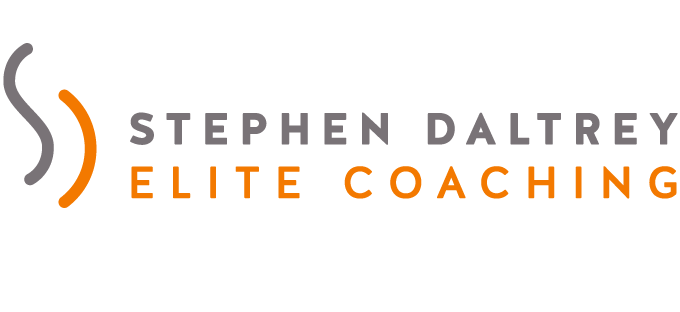 https://www.stephendaltrey.com/wp-content/uploads/2024/05/typewriter_1500x1000.jpg
1000
1500
16kadmin23
https://www.stephendaltrey.com/wp-content/uploads/2022/08/StephenDaltrey_logo_2_680x312.png
16kadmin232024-05-03 13:06:442024-05-03 13:29:11Transforming Leadership Series #6 – Words Matter
https://www.stephendaltrey.com/wp-content/uploads/2024/05/typewriter_1500x1000.jpg
1000
1500
16kadmin23
https://www.stephendaltrey.com/wp-content/uploads/2022/08/StephenDaltrey_logo_2_680x312.png
16kadmin232024-05-03 13:06:442024-05-03 13:29:11Transforming Leadership Series #6 – Words Matter
Transforming Leadership Series #5
Inspiring Diverse Workforces
The next topic in my Transforming Leadership series looks at how leaders-as-coach can inspire a diverse workforce to release their collective potential.
We’re leading and coaching in increasingly diverse organisations, with workforces comprised of people that vary in race, ethnicity, religion, gender identity, sexual orientation, neurodiversity, educational background, age and physical ability. Organisations with a diverse workforce are often innovative, inclusive and collaborative and show greater productivity. However, this doesn’t happen by chance.
I trained as person-centred counsellor, a concept developed in the 1940s by American psychiatrist Dr Carl Rogers. His teachings have profoundly impacted my coaching, and I believe they are invaluable in understanding how to act as leader-as-coach for a diverse workforce.
As an ‘expert’, it was his job to tell people what was wrong with them. Over time, his thoughts developed along the lines of ‘Rather than me telling my patients my ideas and solutions, how can I help them discover who they are and find their own answers to their problems?’ He turned conventional wisdom on its head; he realised the patient, rather than the doctor, was the expert. He recognised that if he offered three elements in terms of the way he related to his patients, it would stimulate their ability to discover their answers, heal themselves and move forward in their lives.
In the same way that a tree needs sunshine, water, and soil to grow and flourish, Carl Rogers identified that human beings also need just three ‘Core Conditions’ to grow: Empathy, Non-Judgementalism/Acceptance and Authenticity.
These three simple elements combined are extremely powerful and profoundly shaped my coaching journey. Many years ago, as a volunteer youth counsellor, I received a call about a young person who was suicidal. Could I immediately go and meet them? When I arrived, the client sat opposite me and cried continuously for 50 minutes. I simply sat there, saying nothing. My heart went to them, and I genuinely offered these three conditions.
When I saw the client the following week, they were completely different! They looked so well and said, ‘For two years, I’ve had the most terrible sinuses and pains in my body; I’ve felt blocked and miserable. I’ve had acupuncture and tried all sorts of remedies, but nothing worked. After seeing you last week, the discomfort has reduced by 50%. I feel better than I have in such a long time.’ That is the effect of these three simple yet powerful qualities.
While it took me four years of training as a Person-Centred Counsellor to thoroughly learn how to offer these in a clinical setting, the good news for leaders-as-coaches in a diverse workplace is that it’s something you can use in your coaching toolkit right away to create powerful relationships with a multitude of different people and a diverse workforce.
- Empathy – all human beings want to be heard & understood; this applies to everyone! Using the listening skills explained in my earlier article and demonstrating empathy for the employee or team will have a powerful impact that builds connection between you all.
- Non-Judgmental/Acceptance – This is one of the most potent forces in connecting with others, no matter who they are or how different they may be from you in a myriad of ways. In my work as a coach, the more I accept my client, the more likely they will begin to accept themselves, as well as me as a coach.
- Authenticity – we can all spot a phony! Personal authenticity leads to consistency of behaviour and, most importantly, builds trust. Trust is the basis of all relationships.
To activate the collective potential of a diverse workforce, leaders-as-coaches can combine these three elements to set an inspiring vision that appeals to the shared values of the team. Developing this ‘pull’ coaching culture will draw potential and performance from your workforce. Of course, you will then build in challenge, goal-setting and self-responsibility, with these three elements underpinning the success of these.
If you’re looking for another way to develop understanding and acceptance within a diverse workforce, using the Myers Briggs Type Indicator (MBTI) in a workshop situation can be very powerful. MBTI demonstrates how our individual brains are wired, giving people insight into themselves and why other people might think and behave differently.
As an example, you could ask a group to choose between one of the following statements, from the MBTI Judging and Perceiving axis:
(a) I only play when the work gets done, or
(b) I can play anytime, and the work will get done.
People with an MBTI ‘Judging’ style like to close things down, so they would identify with the former, while people with the MBTI ‘Perceiving’ style like to leave things open, so they would identify with the play anytime option. They are polar opposite and so a judging style boss may become frustrated with a perceiver style team member and vice versa.
The MBTI is a particularly useful tool to use in team workshops as there are no ‘wrong’ answers, and there is no pressure on employees to be anything other than themselves.
I highlight this because leaders-as-coaches who want to inspire a diverse workforce and release collective potential must avoid judgments and be open to the differences in the people they lead and coach. A 20-year-old will see the world very differently to someone aged 40+, and coaching is the way to enable the differences to emerge in order to release the collective potential.
LATEST ARTICLES
- Transforming Leadership Series #6 – Words Matter
- Transforming Leadership Series #5 – Inspiring Diverse Workforces
- Transforming Leadership Series #4 – 5 Ways for Leaders and Managers to become Effective Coaches
- Transforming Leadership Series #3 – Inspiring Leaders to Invest in Personal Skill Development
- Transforming Leadership Series #2 – Essential skills for leaders to excel as coaches
- Transforming Leadership Series #1 – Transforming from ‘Leader as Manager’ to ‘Leader as Coach’
- Wealth Psychology in the music & creative industries
- The Wisdom Of Resistance: Why Not Keeping New Years Resolutions Can Be Good For You
LATEST ARTICLES
 https://www.stephendaltrey.com/wp-content/uploads/2024/05/typewriter_1500x1000.jpg
1000
1500
16kadmin23
https://www.stephendaltrey.com/wp-content/uploads/2022/08/StephenDaltrey_logo_2_680x312.png
16kadmin232024-05-03 13:06:442024-05-03 13:29:11Transforming Leadership Series #6 – Words Matter
https://www.stephendaltrey.com/wp-content/uploads/2024/05/typewriter_1500x1000.jpg
1000
1500
16kadmin23
https://www.stephendaltrey.com/wp-content/uploads/2022/08/StephenDaltrey_logo_2_680x312.png
16kadmin232024-05-03 13:06:442024-05-03 13:29:11Transforming Leadership Series #6 – Words Matter
Transforming Leadership Series #5 – Inspiring Diverse Workforces








Leave a Reply
Want to join the discussion?Feel free to contribute!